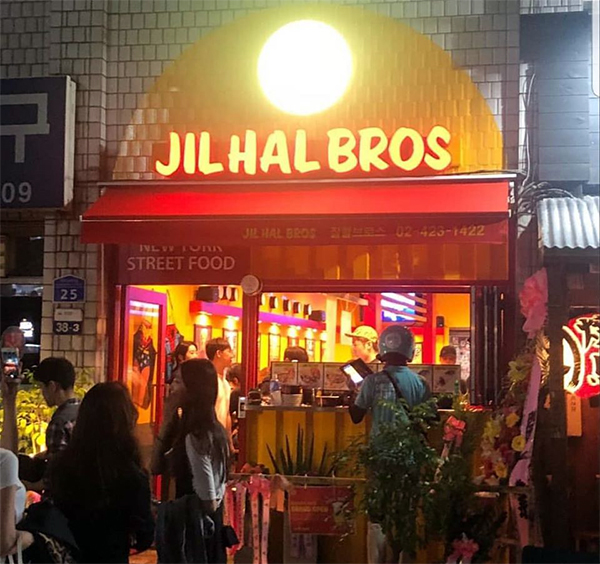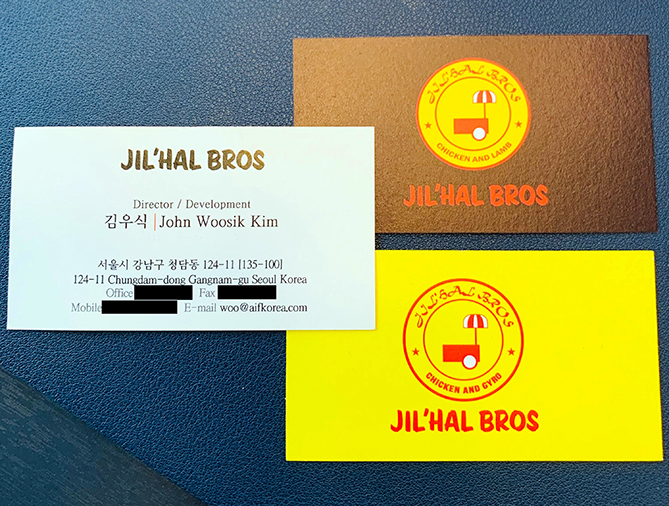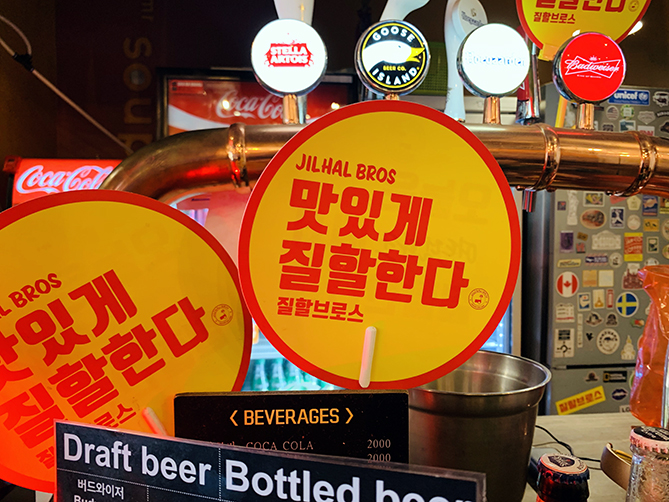“Chanjin’s Burgers” or “Burgerlicious”- which one sounds more enticing? Many would agree that the latter sounds catchier and more attractive. Ever since people started opening businesses, business names have almost always been designed to directly inform consumers about the given industry or products. However, companies today are moving away from this naming convention toward something more creative.
Take “Ya-na-doo (야나두)” for example. This English education firm has a name that gives no clue as to its industry or product and translates to the innocuous statement, “Hey, me too.” Despite the company’s seemingly irrelevant naming, many consumers feel that the name sends the message that English can be easy to learn. Since its launch,the company has grown significantly, making approximately KRW 500 million in profit. While the catchy name is not the sole factor of its success, the name “Ya-na-doo”, without a doubt, has helped the company stand out among the thousands of English education businesses in Korea.

Such unorthodox naming of businesses is not limited to the education field. One day, as I was walking down the street I live on, I passed an interesting sign that read, “Jilhal Bros”. While at first glance it may look like the Korean slang term- “jiral”- meaning “ridiculous”, it is actually the name of a restaurant selling comfort foods. Doesn’t this reflect the true creativity in modern brand naming that so many seek? Does such naming help businesses rise above the sea of companies with cliche names? Filled with these questions, I walked into the restaurant to hear the story of “Jilhal Bros” directly from its owner.

According to John Woosik Kim, the director of development at Jilhal Bros, he got the idea for the restaurant chain after bringing back to Korea his favorite comfort foods from his college years. In New York City, halal food is a staple among street foods as is tteokbokki in South Korea. Adopted from Mediterranean and Greek cuisines, the dishes served by halal carts, such as “chicken over rice”, are very popular among busy New Yorkers. As Kim missed halal foods after returning to Korea, Kim decided to open a store in Seoul to sell his favorites from his college years in New York.

After deciding to open the restaurant, Kim had a hard time coming up with a name. Based on his desire to preserve the ethnic vibe of halal food while attracting the attention of customers, Kim came up with - Jilhal Bros - which contains part of the word “halal” and sounds similar to the Korean slang word I explained above. He states that many customers mention the creative name as they walk in, and the meme “Let’s go Jilhal” is becoming popular among the younger customers. The name is not only catchy for the South Korean public, but it also attracts many foreigners who are familiar with halal foods. Just as satisfied with the name as the customers, Kim believes that the unforgettable name keeps customers coming back and hopes trend continues for his upcoming eighth restaurant.

Among the different marketing strategies used by businesses today, creative brand naming exemplifies the essence of marketing as consumers are attracted simply by the name of the business. Without initial interest from consumers, businesses never get an opportunity to sell their products in the market. Neither “Ya-na-doo” nor “Jilhal Bros” hints directly at the type of business, yet the curiosity they generate gets consumers in the door. As a consumer myself, I find creative brand names very interesting, kind of like puzzles. Once I figure out what each company does, the name fits like a puzzle piece and amazes me. I hope to see more creative brand naming in the future, as it not only entertains consumers but also benefits businesses themselves.

Chanjin Yoon
Grade 11
Yale Secondary

